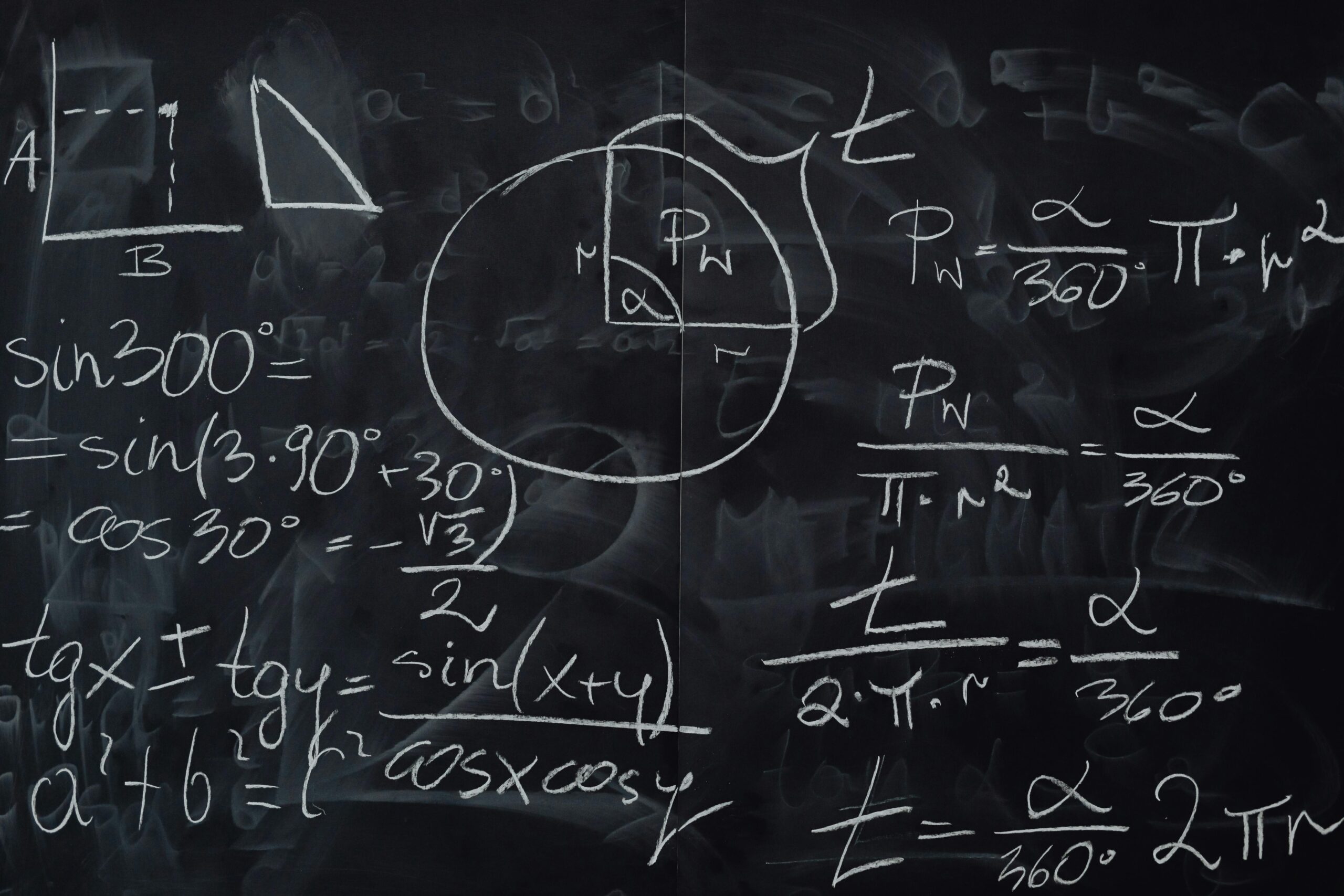Why Every Math Enthusiast Should Try the Euclid Contest
If you love math, enjoy solving problems, or get excited about puzzling out complex ideas, the Euclid Math Contest is for you! The Euclid competition is not just a regular math test; it’s a thrilling opportunity to challenge yourself, hone your skills, and see how you measure up against other high school math enthusiasts from Canada and beyond. This contest is designed for students who have a passion for mathematics and are eager to push themselves to think more creatively and analytically. But why exactly should every math enthusiast give it a shot?
First of all, the Euclid Math Contest is a true test of your problem-solving ability. It’s not about memorizing formulas or cramming facts the night before. The questions in the Euclid competition often require you to think outside the box and apply mathematical concepts in ways you may not have encountered before. This makes the contest a rewarding experience for students who love solving puzzles. In fact, many students find that the satisfaction of solving a challenging Euclid problem is one of the best parts of the competition!
Not only does the Euclid competition give you a chance to flex your math muscles, but it’s also highly respected by universities, especially if you’re aiming for a career in STEM fields. A strong performance in the Euclid contest demonstrates your problem-solving skills, creativity, and determination. Many universities, particularly those in Canada, recognize and value participation in the contest when reviewing applications. It can give you an edge, especially if you’re applying to competitive programs like engineering, computer science, or physics.
Participating in the Euclid Math Contest also helps you develop critical thinking and perseverance, which are valuable skills in any field. When you work through a tough math problem, you train your brain to think logically and systematically, to look for patterns, and to consider different approaches. These are all skills that are useful far beyond the realm of mathematics. Whether you go on to study science, business, law, or any other subject, the problem-solving abilities you gain from participating in the Euclid contest will serve you well.
Moreover, the Euclid contest is a great way to prepare for university-level math courses. The problems you’ll face in the competition are often similar to the kinds of challenges you’ll encounter in more advanced math classes. By participating, you’ll get a taste of what higher-level math is all about. This is especially useful if you’re planning to study mathematics, engineering, or a related field in university. The Euclid competition helps bridge the gap between high school math and the more rigorous courses you’ll face in higher education.
If you’re looking for a sense of community, the Euclid contest is also a great way to connect with other math enthusiasts. Whether you’re part of a math club at your school or studying independently, you’ll find that preparing for and participating in the contest brings you together with others who share your passion. Discussing problems, comparing solutions, and learning from each other is not only beneficial for your preparation but also makes the process more enjoyable. Math can sometimes feel like a solitary activity, but the Euclid competition reminds us that it can also be a collaborative and social experience.
Another reason every math enthusiast should try the Euclid contest is the confidence boost it provides. There’s something incredibly satisfying about tackling a difficult problem and arriving at a solution. Even if you don’t get every question right, the process of working through tough problems and learning from your mistakes helps you grow as a mathematician. Each time you participate, you’ll find that your confidence in your abilities increases, and you’ll be more prepared to face future challenges—both in math and in life.
If you’ve participated in other math contests like the Kangaroo Math Competition, you’ll find that the Euclid contest builds on many of the same skills but takes them to the next level. While the Kangaroo competition is known for its creative and playful approach to problem-solving, the Euclid contest offers a more in-depth and rigorous challenge. However, both competitions emphasize the importance of thinking critically and approaching problems in new and innovative ways. If you’ve enjoyed the Kangaroo competition, you’re likely to find the Euclid contest just as exciting—if not more so!
How to Prepare for the Euclid Math Contest
Preparing for the Euclid Math Competition can feel daunting, but with the right approach, it can also be incredibly rewarding. Whether you’re aiming for a top score or simply hoping to enjoy the experience and learn something new, preparation is key. In this section, we’ll explore some practical tips and strategies to help you get ready for the Euclid contest. From mastering the basics to tackling advanced problems, we’ve got you covered.
One of the first things you should do when preparing for the Euclid competition is to familiarize yourself with the format and the types of questions you’ll encounter. The Euclid contest typically includes questions from a wide range of mathematical topics, including algebra, geometry, number theory, and combinatorics. It’s important to understand that the questions in this competition are often designed to test not just your knowledge of math, but also your ability to think creatively and apply concepts in new ways. To get a sense of what to expect, start by reviewing past Euclid papers. This will give you a good idea of the types of problems you’ll face and the level of difficulty you can expect.
Once you’ve familiarized yourself with the format of the contest, it’s time to start building a solid foundation in mathematics. The Euclid competition doesn’t just test your ability to memorize formulas—it tests your understanding of key concepts and your ability to apply them. To prepare effectively, make sure you have a strong grasp of the fundamentals. Topics like algebraic manipulation, geometric reasoning, and basic number theory are essential for success in the contest. If you’re struggling with any particular area, don’t be afraid to spend some extra time reviewing and practicing until you feel comfortable.
One great way to reinforce your understanding of mathematical concepts is by solving problems from other math contests, such as the Kangaroo Math Competition. While the Kangaroo contest is known for its creative and playful approach to problem-solving, it still requires a strong grasp of basic math principles. By solving problems from both the Kangaroo and Euclid contests, you’ll be able to approach math from different angles and develop a more well-rounded skill set. Plus, switching between different types of problems keeps your preparation varied and interesting.
In addition to practicing problems from past Euclid and Kangaroo competitions, it’s also a good idea to challenge yourself with more advanced problems. The Euclid contest often includes questions that require you to think critically and apply mathematical concepts in new ways. To prepare for these types of challenges, try solving problems from other advanced math contests, such as the Canadian Mathematical Olympiad (CMO) or the American Mathematics Competitions (AMC). These contests offer a similar level of difficulty to the Euclid competition and can help you build the problem-solving skills you’ll need to succeed.
Another important aspect of preparation is time management. The Euclid Math Contest is timed, and you’ll need to balance your time carefully to ensure you can complete all the questions within the allotted time. One common mistake students make is spending too much time on a single problem and not leaving enough time for the rest of the test. To avoid this, practice solving problems under timed conditions. Set a timer for each practice session and try to mimic the conditions of the actual competition as closely as possible. This will help you get used to the pressure of working under time constraints and ensure that you can manage your time effectively on the day of the contest.
As you prepare for the Euclid contest, it’s also important to remember that learning is a process. Don’t be discouraged if you struggle with certain problems or concepts at first. The more you practice, the better you’ll get. One effective strategy is to keep a notebook of all the problems you’ve worked on, including those you found difficult or got wrong. After each practice session, review your notebook and go over the problems you struggled with. Try to understand where you went wrong and what you can do differently next time. This reflective approach to learning will help you identify your weaknesses and turn them into strengths.
Finally, don’t forget to have fun! Preparing for the Euclid Math Contest doesn’t have to be all about hard work and serious study sessions. If you’re part of a math club or study group, use this as an opportunity to collaborate with friends and enjoy the process of learning together. Discussing problems, comparing solutions, and working through tough questions with others can make the preparation process more enjoyable and less stressful. Plus, learning from your peers is a great way to gain new insights and approaches to solving problems.
Interested in learning about IB education in Ontario? Check this!
Do want your child to excel at Math and Science? Check more information about the Math Olympiads and Science Competitions in Ontario!



